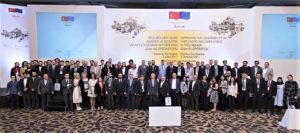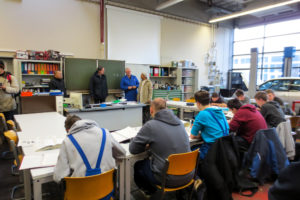
Strengthening the Internal Market
Project is comprised of six components, as follows: Component 1: Improving the strategic, legislative and institutional framework in area of Free Movement of Goods Component 2: Improving the strategic, legislative and institutional framework in area of Free Movement of Services. Component 3: Improving the legislative alignment with the

Increasing Attractiveness, Inclusiveness and Relevance of VET and Adult Education
The overall objective is to improve skill matches of youth and adults in line with labour market needs by increasing access to quality vocational education, training and adult education. The project supports the Ministry of Education and Science of the Republic of Nort Macedonia and related national educational

Technical Assistance for Improving the Adaptability of Employers and Employees in TR33
Qualified individuals mean a powerful region and a powerful region requires investing in human resources. Hence, this assignment aimed to encourage employers and employees of SMEs in the TR33 Region (Kütahya, Afyonkarahisar, Manisa, and Uşak provinces), particularly by promoting lifelong learning. More specifically, the project’s purpose was to

Technical Assistance for Promoting Youth Employment
The participation of young people in the labour market is a challenging topic for every country. To increase the employability and entrepreneurship of young people, one needs to attract and retain more people in employment by promoting youth employment and decreasing the unemployment rate of young people. Within

Improvement of Legislation, Control and Awareness in Food Safety, Animal Health and Welfare in Ukraine
The project aims to support the implementation of the Association Agreement’s provisions between the EU and Ukraine concerning food safety, animal health, and welfare.

Skills Development and Innovation Support Project
The labour market demands quick responses to changes in the market and the demographic situation. Within this scope, the assignment aimed to provide technical assistance to the Government of Macedonia and the Ministry of Education and Science (MOES) to reform the 4-year Secondary Technical and Vocational Education and

